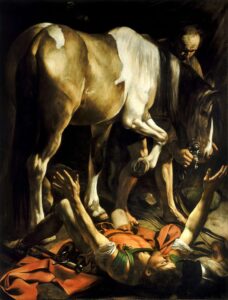Readings: I Tm 6:13-16. Ps 99. Luke 8:4-15
The blurb for the New Collegeville Commentary on First and Second Timothy begins ‘If St Paul and his followers had sent these messages by email they long ago would have been deleted and now floating in cyberspace’.[1] The outcome that these Letters would be lost in the vast digital library which at times looks like a long, dark cloud is depressing. However, as the commentator continues, ‘But they were painstakingly written and preserved so we twenty-first century Christians can still read about and reflect on life in the church at the end of the first century’.

Reading from Paul’s First Letter to Timothy this past week reminds us that Paul relied on ‘the grace of our Lord [which] overflowed for me with the faith and love that is in Christ Jesus’. Paul insists on God’s intervention in his life because of his prior identity as ‘a blasphemer and did all I could to injure and discredit the faith’. (1:13-14) In contrast to his own ignorance which caused injustice, casting ignominy and injury on those who followed ‘Christ Jesus our Lord’, in today’s final reading Paul speaks of Jesus ‘who spoke up as a witness for the truth in front of Pontius Pilate’. This historical fact – which Paul would have heard of from Peter and his fellow apostles – found its way into the Creed some centuries later and is confessed today, (though the focus here is on the fact that Pilate cowardly consented to the crucifixion of Christ). Paul commends his readers for how they have ‘spoke up for the truth in front of many witnesses’.
Paul reminds his readers that ‘I put to you the duty of doing all that you have been told, with no faults or failures, until the Appearing of our Lord Jesus Christ’ (6:14). This duty has been detailed in previous parts of the Letter, some of which we have listened to in the Liturgy of the Word throughout the week. With his focus on the virtues, both moral and theological, including ‘righteousness, godliness, faith, love, endurance, gentleness’, we are reminded that these values hold true as much for our time as they did twenty centuries ago. The Christian form of living, which Paul had condemned before his own conversion to ‘the living God’, looks to the ‘Appearing of our Lord Jesus Christ who at the due time will be revealed by God’.
Thankfully, Paul’s Letter(s) to Timothy, like his other correspondence, has not disappeared or been deleted but remains aware and active in and through those who belong to ‘the household of God, which is the church of the living God, the pillar and bulwark of the truth’ (3:15). By bringing belief and behaviour together we can, in the prayer and praise of today’s Psalm, ‘Know that the Lord is God…Give thanks to him and bless his name’.
Kevin O’Gorman SMA
[1] Terence J. Keegan, First and Second Timothy, Titus, Philemon, Liturgical Press, 2005.

